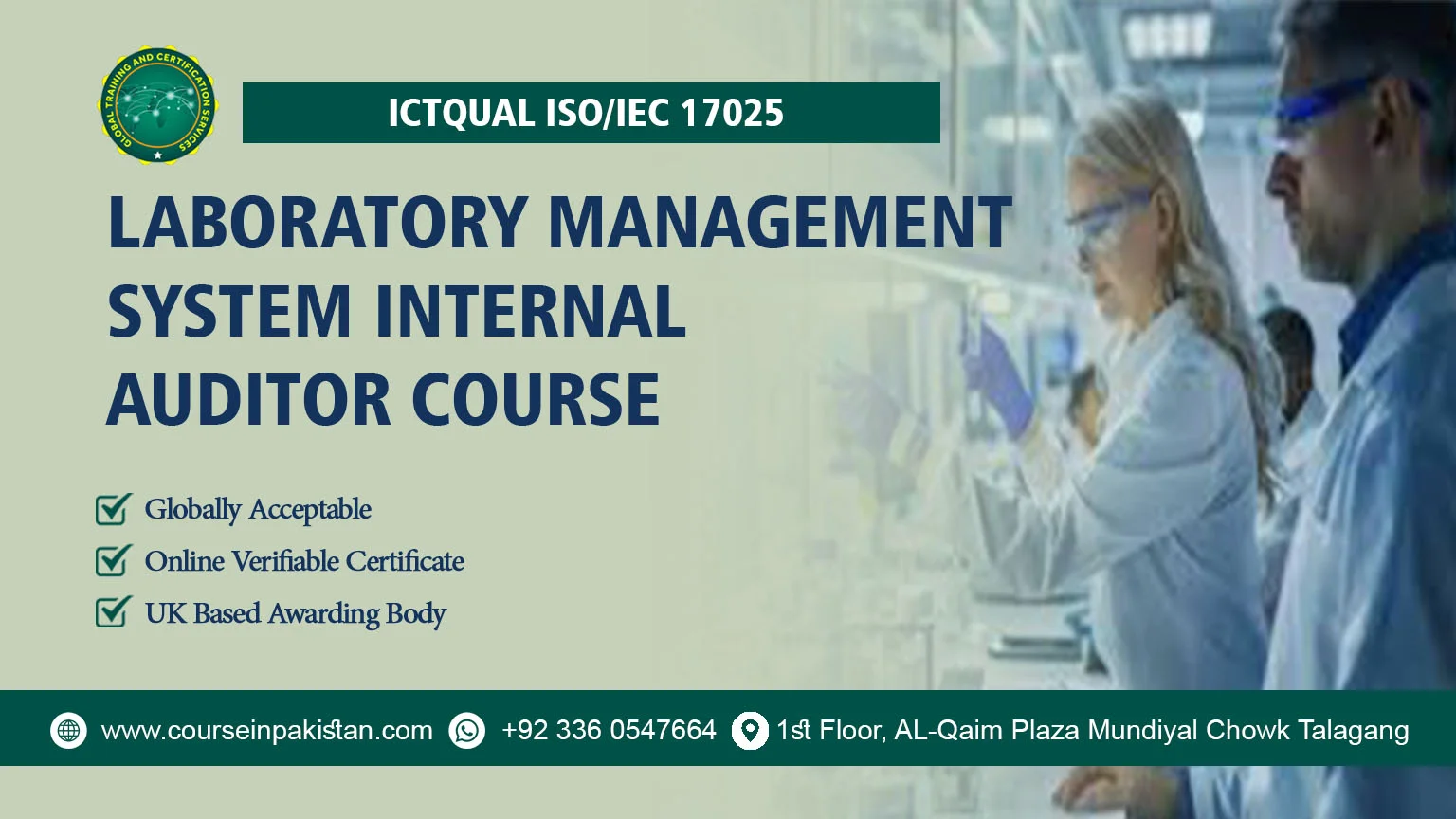
ICTQual ISO/IEC 17025 Laboratory Management System Internal Auditor Course
In the realm of scientific research, testing, and calibration laboratories, maintaining quality, accuracy, and reliability is critical. The ISO/IEC 17025 standard sets the benchmark for competence in laboratory operations, ensuring that laboratories produce valid and reliable results consistently. For professionals involved in auditing and maintaining compliance within laboratory settings, the ISO/IEC 17025 Laboratory Management System Internal Auditor Course provides essential training and certification.
Course Introduction
The ISO/IEC 17025 Internal Auditor Course is designed to equip participants with the knowledge and skills necessary to audit Laboratory Management Systems based on ISO/IEC 17025 standards. This comprehensive training program focuses on understanding the requirements, principles, and best practices essential for ensuring the quality and reliability of laboratory operations.
Course Overview
Throughout the course, participants will explore the fundamentals of ISO/IEC 17025, audit principles, techniques, and methodologies specific to laboratory management systems. Practical exercises and case studies provide hands-on experience in planning, conducting, reporting, and following up on audits of laboratory processes. The course emphasizes aligning laboratory practices with international standards to ensure accuracy, reliability, and compliance.
Course Benefits
- Enhanced Laboratory Operations: Learn to audit and improve laboratory processes to enhance accuracy, reliability, and consistency of results.
- Global Recognition: Obtain a globally recognized qualification that demonstrates competence in auditing laboratory management systems.
- Compliance Assurance: Ensure adherence to ISO/IEC 17025 standards, regulatory requirements, and customer expectations.
- Career Advancement: Enhance career prospects in laboratory management, quality assurance, and auditing roles within the scientific and testing industry.
Course Study Units
The course typically covers essential topics such as:
- Introduction to ISO/IEC 17025 Laboratory Management Systems
- Principles of Quality Management in Laboratories
- Roles and Responsibilities of Laboratory Internal Auditors
- Audit Planning, Preparation, and Conduct
- Audit Reporting and Follow-up Actions
Learning Outcomes
Who is This Course For?
This course is ideal for:
- Laboratory Managers and Supervisors: Responsible for overseeing laboratory operations and quality management systems.
- Internal Auditors: Looking to specialize in auditing laboratory practices and processes.
- Quality Assurance Professionals: Ensuring adherence to ISO standards within laboratory environments.
- Scientists and Technicians: Involved in optimizing laboratory processes to meet quality standards and regulatory requirements.
Future Progression for This Course
Upon completing the ISO/IEC 17025 Internal Auditor Course, participants can pursue further professional development and career advancement opportunities, such as:
- Lead Auditor Certification: Advance to become a certified lead auditor for ISO/IEC 17025, capable of leading external audits for certification purposes.
- Advanced Quality Management Courses: Explore specialized courses in related fields such as Risk Management, Measurement Uncertainty, or Laboratory Accreditation.
- Consultancy and Advisory Roles: Provide expert advice on laboratory management best practices and standards implementation to laboratories globally.
- Organizational Leadership: Take on leadership roles in laboratory management, driving strategic initiatives for improved testing capabilities, regulatory compliance, and customer satisfaction.
ISO/IEC 17025 Laboratory Management System Internal Auditor Course equips professionals with the necessary skills and knowledge to audit, enhance, and maintain compliant and high-quality laboratory management systems. By mastering ISO/IEC 17025 standards and auditing techniques, participants contribute to ensuring the accuracy, reliability, and regulatory compliance of laboratory operations, thereby enhancing trust and credibility in scientific testing and calibration practices globally.






